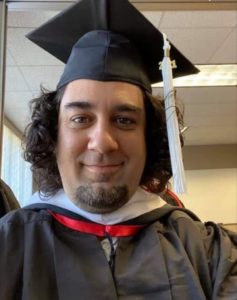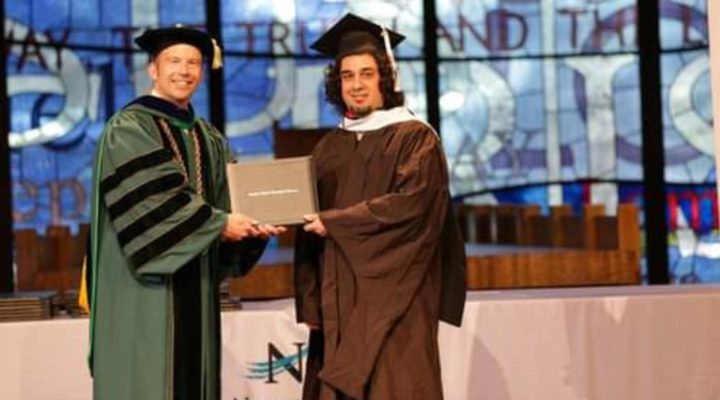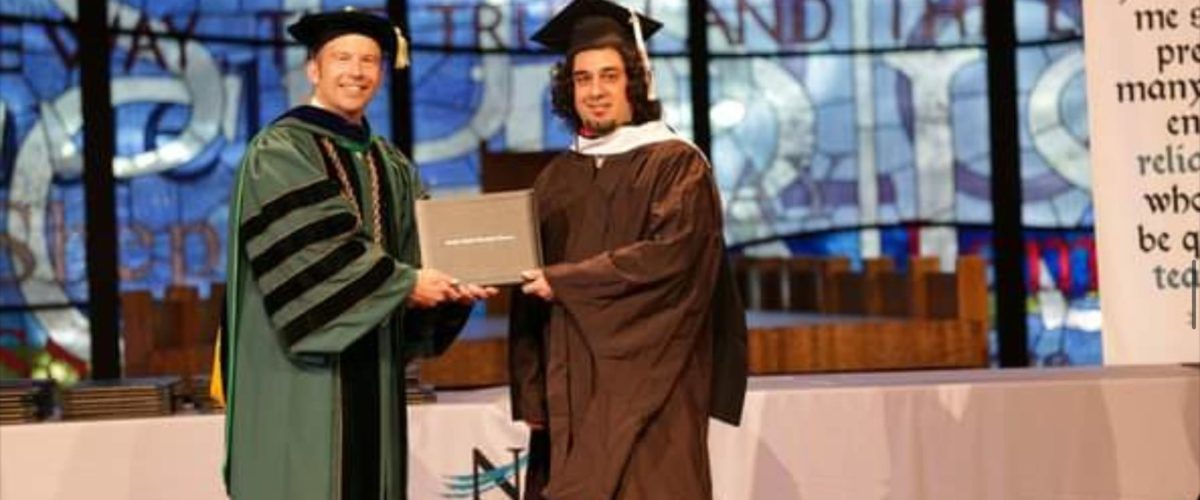Over the past decade, evangelicals have had to come to terms with the fact that people are leaving the church in droves. According to a recent Gallup poll, just 47% of Americans are members of a church, falling from 70% in 1999.
This decline in church membership also has begun to spill over into 29% of pastors seriously considering leaving the ministry and 55% of seminaries accredited by the Association of Theological Schools reporting declines in enrollment. And we have yet to discover the long-term impact that COVID-19 will have on these numbers.
While there are many factors contributing to the declining enrollment of seminaries, the fact that there has been a 23% drop in church membership over the past 20 years has to be a significant contributing factor. And as the membership declines, the national conversation about “deconstruction” has drastically increased.
“My journey ultimately became about pursuing an endlessly knowable mystery all the way to seminary.”
“Deconstruction” has become a buzzword many of us dislike but that keeps being used to define the journey of evangelicals disconnecting from the theology and community they once were fully convinced of and committed to.
While The Gospel Coalition attempts to frame proper deconstruction as the process of becoming even more committed to their theology before you lose your faith, others have come together to counteract that group’s misunderstanding of deconstruction and to invite the reader into a journey of embracing mystery before you lose your mind.
My own journey into deconstruction led me to leave my church as well, but not to leave the faith. My journey ultimately became about pursuing an endlessly knowable mystery all the way to seminary.
Choosing a seminary
How could a seminary attract someone on their way out of the church?
There are many seminaries out there that will mold you into a particular vision they have for their denomination or tribe. These seminaries tend to be static in their theology and closed in their openness to discovery.

Rick Pidcock
One of the most important parts of my journey has been learning to live into our evolutionary story. Ilia Delio says, “We have not accepted evolution as our story… . Politically, we have fiefdoms and kingdoms; socially, we have tribes and cults; religiously, we have hierarchy and patriarchy.”
Instead, Delio calls us to “let go of structures that prevent convergence and deepening of consciousness and assume new structures that are consonant with creativity, inspiration and development.”
My desire in choosing a seminary was to find a place that reflects on its theological heritage, that has a track record of liberating people from hierarchy and patriarchy and that is open to a convergence of theologies that foster creativity, inspiration and development.
Northern Baptist Theological Seminary seemed to provide opportunities for an honest assessment of our theological past while also providing access to resources and theological possibilities I was unaware of. Northern began 106 years ago and eventually became part of the Northern Baptist Convention, providing more than a century of theological development for some of the most influential thinkers and pastors of the 20th century.
While Northern has a Baptist heritage, it provides a theologically and racially diverse faculty that offers training from a far greater variety of perspectives than I ever had been around. In my 17 years of Baptist education, my teachers had been exclusively white men, other than my elementary teachers and one or two English teachers in junior high. However, Northern utilizes a faculty of women and men from a wide variety of cultural and ethnic backgrounds.
Each faculty member brings a unique set of wonders and wounds through which they embody the story they invite us into.
Learning to love myself
Much of my theological deconstruction had to do with the way Yahweh was presented in the Hebrew Bible. Reading Yahweh’s disapproval of Israel in advance of my class on the Pentateuch at Northern was quite triggering for me as someone who had wounds of feeling constantly disapproved.
“Taking these classes would become more than simply an educational exploration about theological concepts. It would require facing the wounds my previous theological worlds had given me.”
Taking these classes would become more than simply an educational exploration about theological concepts. It would require facing the wounds my previous theological worlds had given me.
My professor, Ingrid Faro, approached the class from a rich well of personal, scholarly and pastoral experience. Hearing her personal story helped me realize she wasn’t simply going to gloss over some of the parts of Scripture that really bothered me. She understood the plight of the oppressed.
Listening to her lay out the scholarship gave me a range of possibilities for how to handle the text and piqued my curiosity to think even more creatively about it. And feeling invited to be transparent with her about my triggered wounds opened me to receive her teaching at a pastoral depth as well.
Thus, studying the Pentateuch became for me a journey of learning to love myself through facing and processing my wounds.
Learning to love my neighbors
Academic work should happen in community rather than in isolation. Because Northern utilizes a wide variety of theological perspectives on the faculty, it attracts a wide variety of students. There were moments when I would casually mention something about Calvinism that I thought was ridiculous, and suddenly a fellow student would pipe up, saying they’re a Calvinist and they don’t believe that particular thing.
An entire theological system that had become my wound was interpreted differently by another student as their wonder. And we had to figure out how to think through that while being in community together.
“An entire theological system that had become my wound was interpreted differently by another student as their wonder.”
These nuances of belief also came with a variety of wounds. The more liberal among us were triggered by some of the justifications of violence we read scholars making, while the more conservative among us were triggered by having various certainties placed on the table for questioning without satisfactorily resolving our questions. Denominational varieties among my classmates brought even more nuances and layers to the community.
Whatever perspectives we came into the classroom with, we felt as if theology was being opened up for us rather than summed up for us.
Eventually I began to settle into my home of theological exile and expansion. I realized I probably wasn’t going to fit into anyone’s script, that however deep or far the journey into the infinite went, there would be further to go with more to be liberated.
My final theology classes were taught by Jacob Robinson, an ethicist from Vanderbilt University who specializes in liberation theologies and reconciliation ethics and also earned master’s degrees in comparative religion and theology. Robinson walked us through how Christian theology evolved throughout time, how dynamics of power and privilege or cultural embodiment affected its development, and how theology from the perspective of the oppressed can play a formative theological role rather than merely being an add-on toward the end of a theology class.
While many pastors are leaving the ministry due to theological deconstruction, perhaps a bigger reason for pastors leaving the ministry has to do with ethics issues. Additionally, much of my theological deconstruction had to do with what I had grown to believe were ethics violations within the very theological narratives designed by those in power throughout church history.
“Studying theology for me ultimately was about learning to love my neighbors through facing and processing how the theological communities I participated in building have wounded them.”
Thus, studying theology for me ultimately was about learning to love my neighbors through facing and processing how the theological communities I participated in building have wounded them.
Learning to love the infinite
Studying theology in a context where you are coming face to face with the theological wounds of yourself and your neighbors ultimately opens you to seeing the wonder that is inviting each of them into an infinite journey toward creativity, inspiration and development.
The commencement speaker for this year’s Northern graduation was John Upton, executive director of the Baptist General Association of Virginia.
He told about laying in the Virginia grass as a young man under the night sky, with his grandfather inviting him to imagine as far out into space as he could, and then imagining even farther. He said that life is “always a leaving” and that “we will always experience a leaving, a moving on. And in doing so, a continuing of learning in experiences and encounters … . Our mission is to explore, to seek out, to boldly go.”
He even contrasted churches from this exploration mindset, saying: “Is that how you’d describe church? Church seems to be more about stability, more about permanence, more about safe haven and predictability and tradition. Not that those things are bad. But it seems that’s what we hold on so tightly to that it prevents us from being summoned to where we ought to go.”
But of course, where are we to go? So often on my theological journey, I’ve had no idea where it was leading.
Upton said: “Authentic faith is an open-ended journey. It’s about changing. It’s about growing. It’s about dynamic movement and vulnerability. It’s about good discovery in the company of fine, adventurous companions along the way.”
Then he shared the story of Abraham laying on the hard ground at night asking, “Lord, where are we going?” only to be met with silence until one night when he seemed to hear a voice say, “This is it. This is the place.”
As Upton said these words, I began to cry. I’ve left my theological home. I’m now in exile. I’m learning to love myself and my neighbors.
“What if seminaries took the lead in preparing students not for a life of permanence and predictability, but for a life of openness to new discovery?”
What if this is it? What if this is home? And what if I can go even deeper or further into this home of converging and expanding love? What if anywhere I find myself can be home because the entire cosmos flows from, dwells in and is reconciled to Christ, whether things in the heavens or on the earth?
Many people are indeed leaving the church because the church has become a static safe haven that so often wounds its own rather than being a garden for opening its people to the infinite within themselves and outside themselves.
As seminaries continue to feel the effects of the massive declines in church membership, what if seminaries took the lead in preparing students not for a life of permanence and predictability, but for a life of openness to new discovery? What if seminaries re-imagined training church employees with fostering curious explorers who are at home in the exile of never-ending expansion?
That was what going to Northern Baptist Theological Seminary during deconstruction became for me. It became an opening up to realize that wherever this journey leads, I am home.
Rick Pidcock currently serves as a Clemons Fellow with BNG. He recently completed a master of arts degree in worship from Northern Seminary. He is a is a stay-at-home father of five kids, and he and his wife, Ruth Ellen, have started Provoke Wonder, a collaboration of artists that exists to foster child-like worship through story and song. Provoke Wonder’s first album, Consider the Stars, was released in March 2020.


